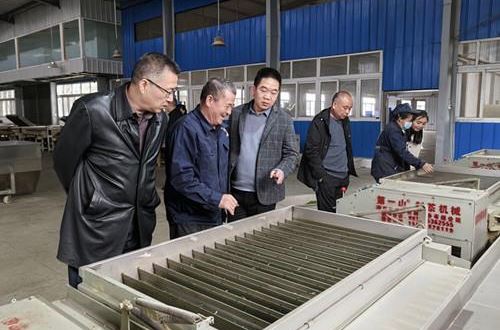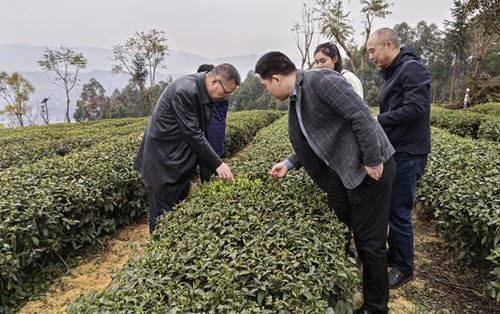Recently, Zhang Kai, Director of the Economic Crops Department of the Municipal Agricultural Technology General Station, together with researcher Chen Mingcheng and others, visited Yongchuan District, Nanchuan District, and Wansheng Economic Development Zone to research and guide the production and sales of spring Tea. They also provided on-site technical guidance addressing existing issues in spring tea production and processing.

The experts visited tea production bases and processing workshops, gaining a detailed understanding of Tea Garden management, spring tea picking labor, fresh Leaf purchase prices, Tea processing techniques, and tea sales through on-site inspections, listening to introductions, and holding discussions. They proposed the following recommendations:
Firstly, early and frequent picking to achieve “picking all that can be picked.” Based on the sprouting of tea buds, pick once a day or every other day to thoroughly harvest all tea buds that meet the standards, avoiding negative impacts on yield and quality.
Secondly, advocating high-quality, high-price, and full acquisition. Tea companies should openly announce purchase prices and standards according to the quality requirements for fresh leaves used in tea production. Tea farmers should also improve the quality of fresh leaves in line with corporate requirements, jointly fostering a favorable atmosphere for a premium market for fresh leaves.
Thirdly, refined tea processing. Each process, such as spreading out, fixation, and cooling, affects the quality of high-grade Green Tea. Strictly adhere to the process standards without arbitrarily changing process parameters and standards, minimizing processing losses and continuously improving tea quality.
Fourthly, closely monitor the occurrence of pests and diseases. Control pest populations through early and frequent picking, multiple batches of picking, or agricultural and physical control measures like insect traps and pheromone lures to mitigate damage.
Fifthly, strengthen brand and product promotion for teas. Localities should proactively plan tea-related activities such as tea-picking festivals, exhibitions, picking experiences, hand-processing experiences, and tasting sessions. Utilize television stations, social media platforms, and other channels to promote early-market premium tea brands and products.

In addition, the experts inspected the construction progress of the export green tea project in Yongchuan District and had detailed exchanges with the project leader regarding the organization of raw materials, tea quality, production-sales, and profitability.